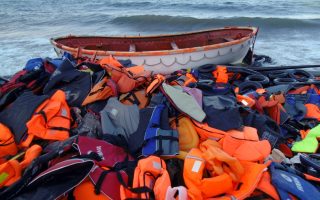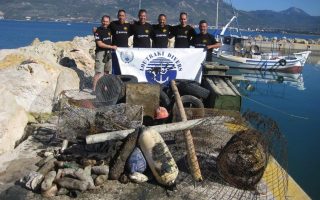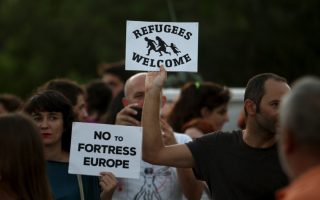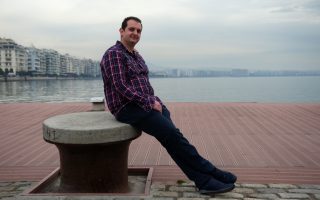Volunteer spirit borne out of 2004 Games still going strong
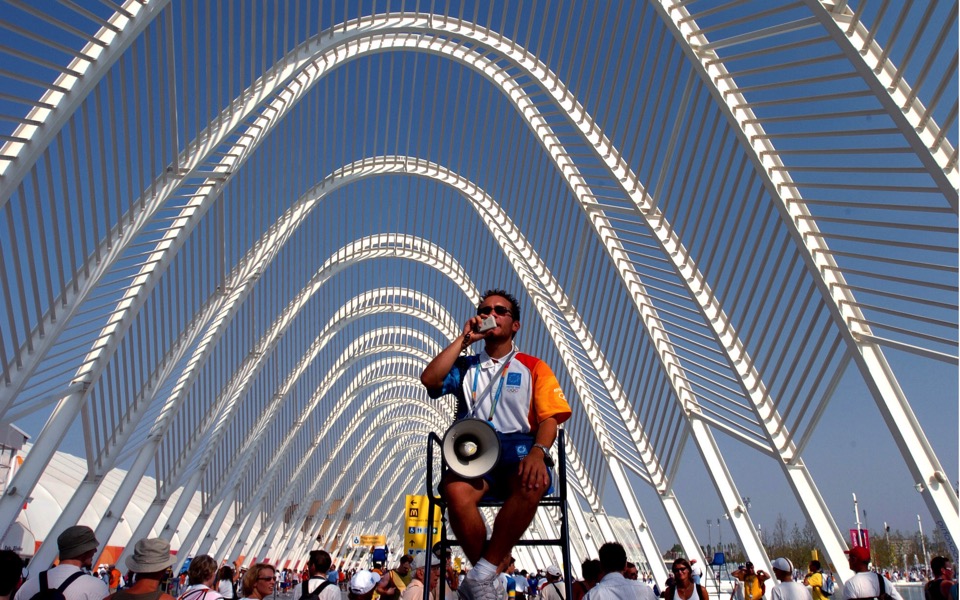
How many decade-old items of clothing do we all have in our closets? More importantly, how many of them still fit us? The other day I saw a man in one of those T-shirts that could be spotted everywhere in Athens back in 2004, when they were worn by Olympic Games volunteers – it fit him just fine and looked good as new. Though I experienced a tug of melancholy thinking of how many opportunities were lost after the Games, I also felt somewhat heartened by its lively colors because the T-shirt is not just an emblem of a force that saved Greece back then, but one that continues to do so today.
Greece may have failed to take advantage of the inanimate wealth it inherited as a result of the 2004 Games, but that is not the case with the human dynamic of the event. The around 50,000 volunteers who played such a pivotal role in the successful outcome of the world’s biggest athletic event, a milestone for Greece, paved the way for the volunteer movement that has blossomed in the past year in response to the refugee and migrant crisis.
“We hear people saying that volunteerism stopped after the Games, but we are in a position to know that is not true,” says Kostapanos Miliaresis, founder of the GloVo volunteerism platform, which joined forces with Volunteer4Greece to form Ethelon. Both organizations were founded in 2012 and within a few years their joint endeavor has registered more than 8,000 volunteers, the overwhelming majority aged 18-25.
“These are kids who saw people around them volunteering for the Olympics, who experienced the atmosphere secondhand from their older siblings, cousins and uncles and aunts, who contributed to the Games,” says Miliaresis, adding that these youngsters grew up understanding the importance of volunteerism.
He says that the financial crisis has played an important part in strengthening the trend.
“The volunteers of 2004 had jobs to go back to. That is not the case today, when many young people are looking for ways to learn new things, explore new experiences and make productive use of their time,” says Miliaresis, who came up with GloVo after volunteering for the Special Olympics in 2011.
Just over half, or 55 percent, of the volunteers who have registered with Ethelon, however, have no prior experience.
The platform initially focused on big events in Greece in the fields of arts, sports, business and so on. As the crisis started setting in, however, it expanded into social campaigns and focused on vulnerable groups. Today, Ethelon cooperates with over 200 nongovernmental organizations in a range of fields.
“Everyone has their own reason for becoming a volunteer,” says Miliaresis. “Some do it for personal growth, others simply because they want to give, and others for networking reasons. For us, success is seeing a young person volunteer for a concert one day and help paint benches at a community center the next.”
One of its biggest recent successes has been Career Fair.4, the country’s first career day for people with disabilities, organized in March in Athens. Ethelon hopes to induct more people with mobility or sensory disabilities into its network, giving those who want to volunteer their services the opportunity to do so. Registrations can be made online at www.glovo.com.gr, while all volunteers receive special training.
